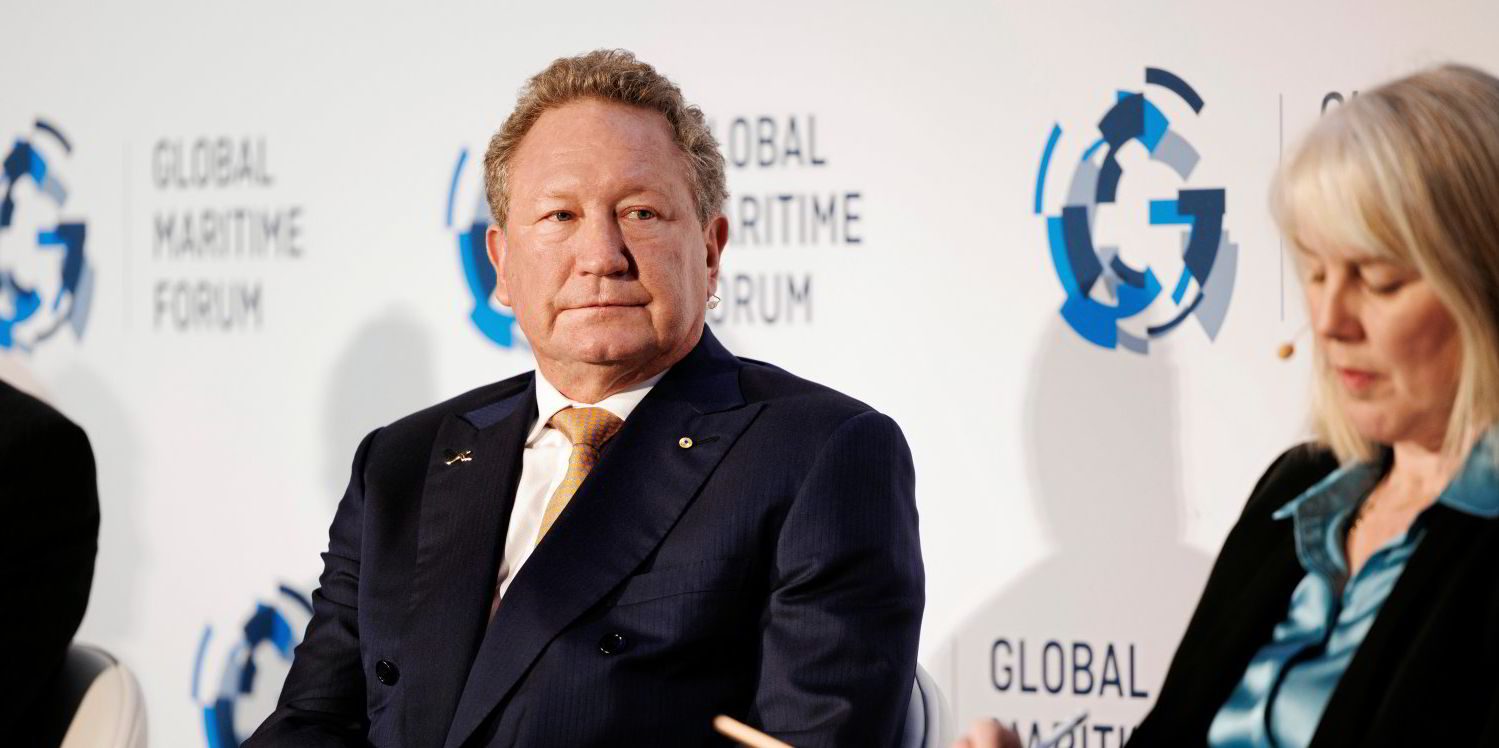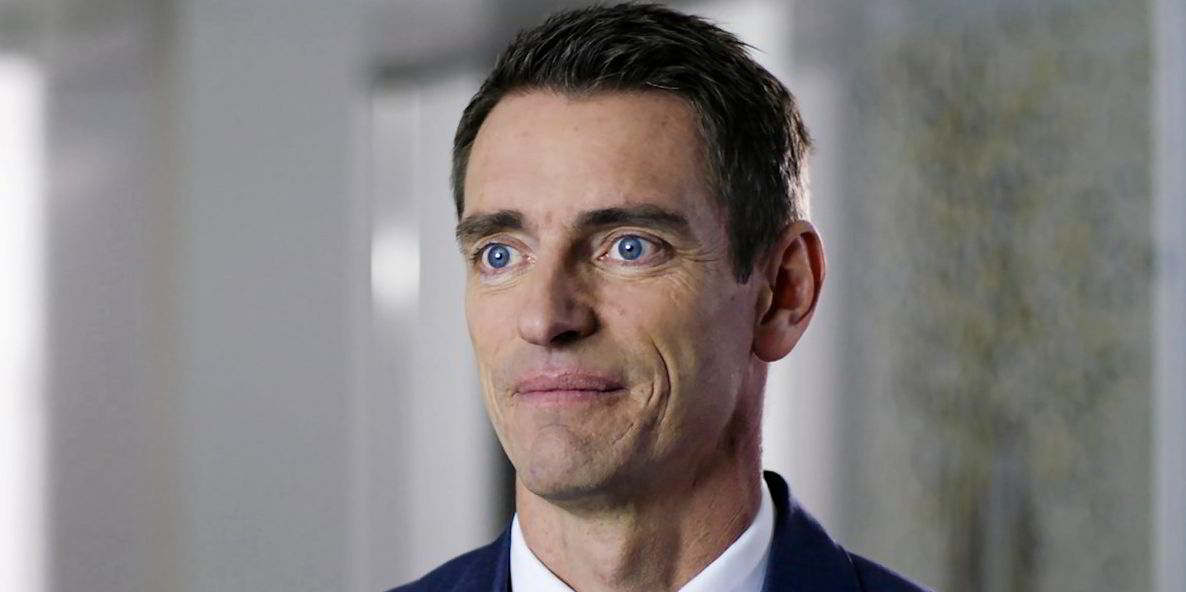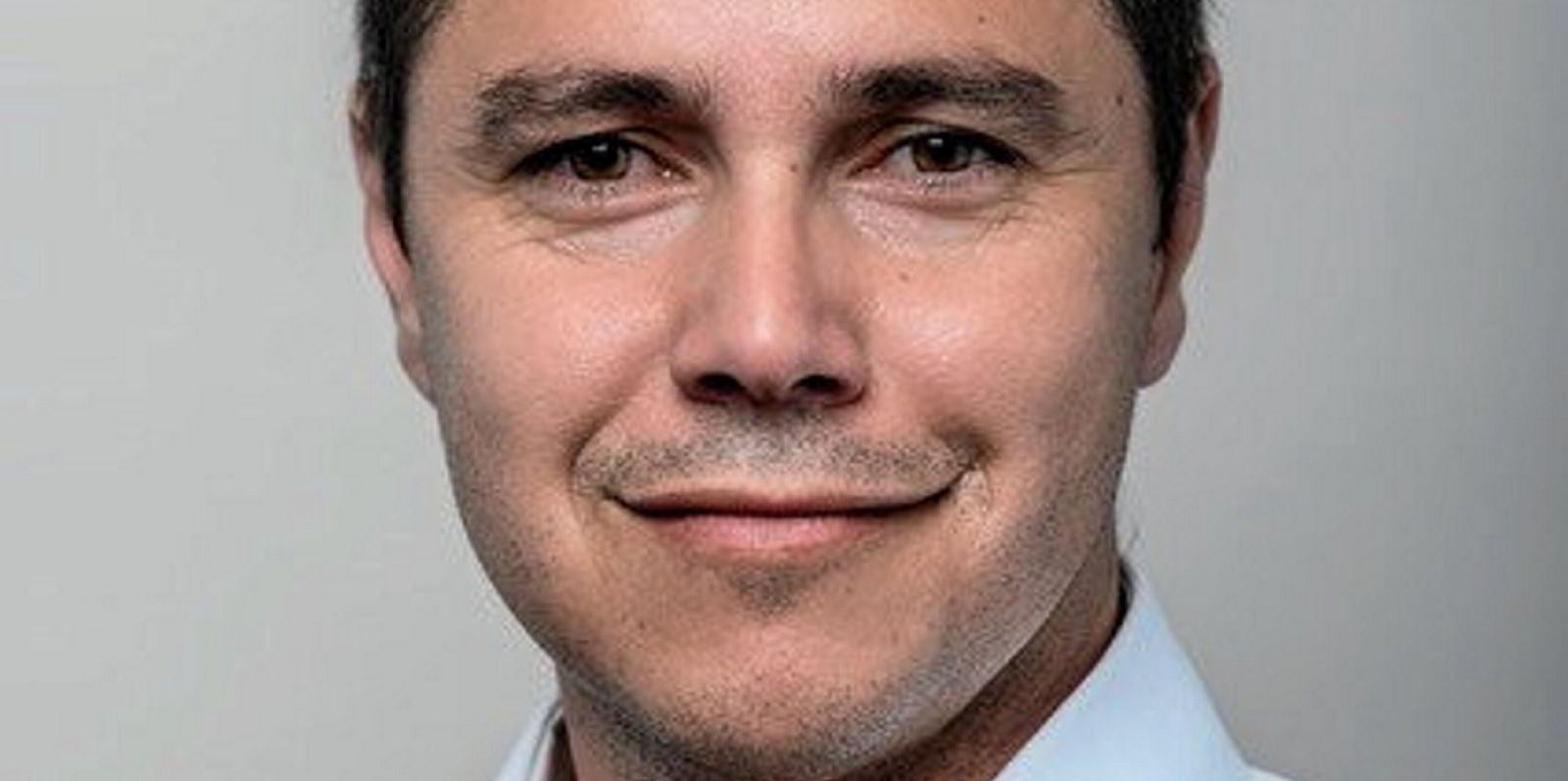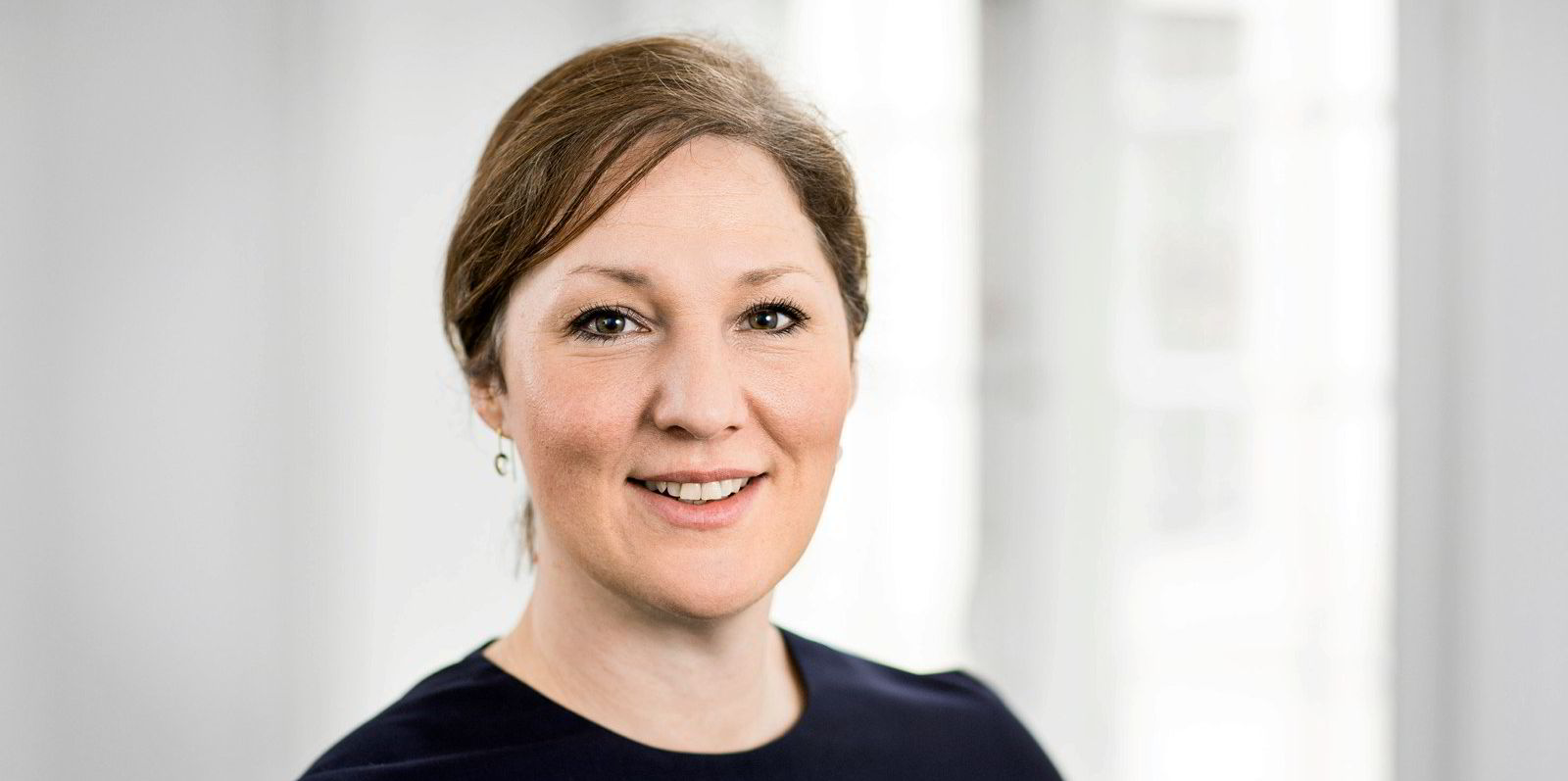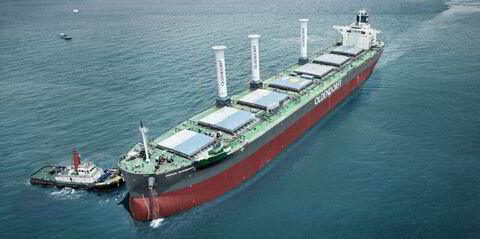It is not easy to put Andreas Sohmen-Pao and Carol Howle in the shade. Heads turn — even in shipping's global elite — when BW Group's chairman and BP's trading and shipping vice president enter a room.
Both are engaged and committed to the need to accelerate the decarbonisation of their own companies and shipping. Both speak with conviction of the moral and business cases for addressing climate change.
But at last week's influential Global Maritime Forum of shipping industry leaders in London, they were left looking almost like laggards. The hard-charging Australian miner Andrew "Twiggy" Forrest gave a masterclass in how leadership, backed with more than a little capital, can drive real change fast.
Taking action
The founder and chairman of Fortescue Metals Group told how he had recruited teams to build a green hydrogen fuel cell power unit to replace the conventional diesel engines in his mines' haulage trucks. The project was completed in just three months.
Forrest — Australia's second-richest person, worth about AUD 28bn ($21bn) — followed that by applying the approach to tugs used at Port Hedland in north-western Australia to handle iron ore-exporting bulk carriers.
And the next task he has set his team as he goes about attempting to turn his AUD 50bn group into a "100% green renewable energy and industry company"? Retrofit the eight bulk carriers he owns — and the 90 others he leases — to carbon-neutral fuel. And he intends to do it starting now.
Despite the showmanship on display, his stories highlighted an uncomfortable reality. The time of arguing about climate change, of technology constraints, of financial viability, is drawing to a close. The next chapter will be about action. And that will be much more challenging.
For those who have made the mental leap and understood the changes that will sweep industry over the next 20 years, the next steps will be easier to make, since they comprehend there is no alternative.
Sohmen-Pao, who controls 450 vessels in nine companies, has invested in an array of start-ups and spin-offs to test new technologies and processes. "We need to be honest. This is going to be painful," he said.
Howle is on BP's core team leading its energy transition. Although it has only taken baby steps so far, its strategy is set.
Future vision
Also speaking in the Global Maritime Forum’s opening plenary was Alex Saverys, who has long championed hydrogen as future fuel for shipping. When we put the CMB chief executive's vision for hydrogen on the cover of TradeWinds in 2018, before many had even heard of the concept, some wondered who was more misguided: this publication's editors or Saverys himself?
Yet in just three years, hydrogen and its derivatives as industrial fuels have moved from the fringes to mainstream.
CMB's next hydrogen-fuelled vessel will be ready shortly after the United Nations' COP26 climate conference in Glasgow. Saverys intends for the group's entire orderbook to be powered by green ammonia — made from green hydrogen — when engines are ready in two or three years.
"2030 is a very realistic target" to decarbonise CMB's fleet, he said.
"To move now, you need crazy people," Saverys added. There is no point waiting for government subsidies that may never arrive, he added.
Collaboration in ways many in shipping are unfamiliar with will be as important as commitment.
"It's about bringing complementary skill sets together," said Howle. Speaking to nearly 200 delegates from senior positions across the industry at Church House in Westminster, she added: "We — BP — need to decarbonise. We — the willing — need to work together."
Collaboration is a powerful mantra in decarbonisation, as those who commit come to understand that such a fundamental switch cannot be completed if companies remain isolated in commercial and operational silos.
And deeper collaboration between government and industry is fundamental to economist Mariana Mazzucato's argument to drive decarbonisation, build a sustainable economy and "reset capitalism by shaping policy around a shared moonshot" mission.
Forrest is confident the future can be bright if action is taken. "I believe the shipping industry can lead the industrial world" in decarbonisation, he said.
And while he may be brash, he is investing his money today to ensure his company has a stake in the new economy as it evolves. "The shipping industry can move so much faster," Forrest added. "Whether we have the will is the question."
